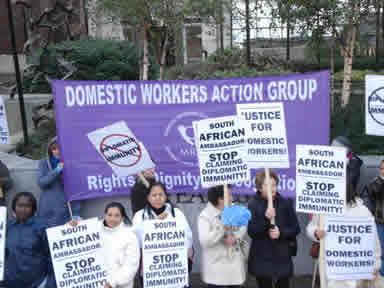Modern day slavery in modern day Ireland

Criminalisation of forced labour would greatly assist in strengthening protections and rights for immigrants. By Siobhán O’Donoghue, Director, Migrant Rights Centre Ireland.
A few weeks ago a Chinese woman, who is a potential victim of trafficking for forced labour was freed from prison under bail conditions where she has been held for the past 18 months.
Yin Yin (not her real name) was brought to Ireland to work in the production of illegal drugs. She was arrested and held on criminal related charges. Despite her case being referred last November to the Garda National Immigration Bureau (GNIB), the body responsible for dealing with trafficking in human beings, no action has been taken to date on her case.
Yin Yin was subjected to an extreme form of modern day slavery, was denied her most basic human rights, not only by her exploiters, but also by the state designated with the responsibility to protect her. Migrant Rights Centre Ireland (MRCI) is supporting several more individuals who are waiting far too long for a decision on their cases. The fact that this can happen in a first world democracy is almost beyond belief.
The Irish government has given assurances that potential victims of trafficking will receive the full protection of the state. However, the lack of urgency in responding to reports of trafficking is deeply worrying and is resulting in victims not receiving adequate protection.
When the GNIB identify a person as a potential victim of trafficking he or she is given a short reflection and recovery period (60 days) during which time the Garda further investigate the case. The DPP then decides if a case can proceed to prosecution.
To date, no case of trafficking for forced labour has proceeded to prosecution. This is the pattern in most countries that have introduced anti human trafficking legislation. The bar to prove trafficking is set so high it is extremely difficult to get to the point of prosecution.
International protocols and local laws are unfortunately designed not to protect the victim but to put the spotlight on the act of trafficking. The victim is merely a stakeholder.
Tackling forced labour under the banner of trafficking is too limiting and too many victims of extreme exploitation are falling through the cracks. MRCI and other migrant rights organisations across the world are now calling for forced labour to be viewed as a crime in its own right.
Forced labour generally involves deception about working and living conditions. Wages, if paid at all, are usually well below the minimum wage. Many are duped and controlled through a variety of means including debt bondage (where you are told you owe more than what your wages are worth). The removal of passports is common place as is the use of intimidation and violence. Families back home are often threatened. Many live in conditions of deprivation and despair believing that they cannot leave.
Criminalisation of forced labour would greatly assist in strengthening protections and rights for people who find themselves in this situation.
Anyone interested in MRCI’s work in this area please get in contact. Please visit www.mrci.ie
Siobhán O’ Donoghue is Director of the Migrant Rights Centre Ireland
